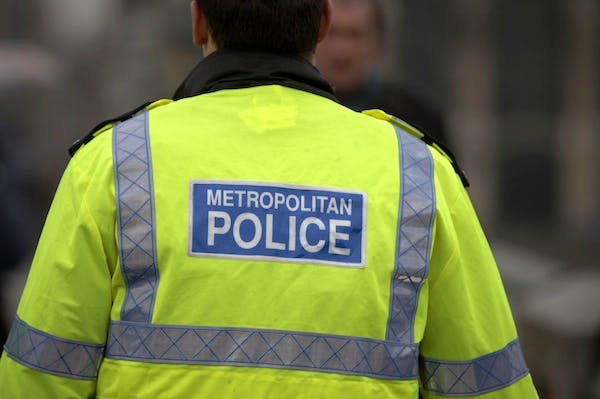Hate crime is up – and Brexit is to blame. It’s a familiar story and one doing the rounds again today following the publication of Home Office statistics on the level of hate crimes last year. The numbers do seem troubling: these offences rose by a third last year, and there was a spike in hate crimes around the time of the EU referendum, as this graph shows:

But can this rise really be blamed on Brexit? Did people really turn on each other in the heady days after the referendum? There are a number of reasons to think not.
Firstly, a rise in hate crime wasn’t isolated to last year. In 2015/16, hate crime was up by 20 per cent on the previous year. In 2014/15, it rose by 18 per cent; and in 2013/14, it also increased. So the suggestion that Brexit is the only reason for a rise is simply wrong.
What’s more, the biggest rise in hate crimes actually relate to abuse directed at those who are disabled (a 53 per cent rise) or transgender (45 per cent). There’s no doubt that some of the language during the referendum was divisive, but it’s difficult to argue that Brexit marginalised either of these groups of people.
Admittedly, the report doesn’t pin the blame for the spike in these types of offences on Brexit, suggesting that better recording is the reason for the dramatic rise. But the problem is that much of the fervour surrounding these statistics fails to take this into account. And some are interpreting the overall rise, which includes these statistics relating to disabled and transgender hate crime, as proof that Brexit caused hate crimes overall to rocket.
Thirdly, what the report fails to acknowledge is that racially and religiously aggravated offences recorded by police always seem to rise around June. There’s no obvious answer as to why this is, but it is a pattern which has been repeated in 2013, 2014, 2015 and 2016. Yes, Brexit might have led to some of the rise in June 2016. But pinning the blame on the referendum fails to take into account this apparently seasonal rise in reports of hate crimes in the early summer.
 It is also worth making the simple point that a hate crime report isn’t the same thing as a conviction. In fact, the Crown Prosecution Service revealed yesterday that the number of those accused of committing a hate crime who ended up in court dipped by 1,000 last year, despite the 20 per cent rise in the number of reports. This could suggest that those carrying out hate crimes are getting away scot-free. It could also, however, simply show that the majority of hate crimes reported don’t reach the threshold of evidence to secure a conviction in a court of law.
It is also worth making the simple point that a hate crime report isn’t the same thing as a conviction. In fact, the Crown Prosecution Service revealed yesterday that the number of those accused of committing a hate crime who ended up in court dipped by 1,000 last year, despite the 20 per cent rise in the number of reports. This could suggest that those carrying out hate crimes are getting away scot-free. It could also, however, simply show that the majority of hate crimes reported don’t reach the threshold of evidence to secure a conviction in a court of law.
Finally, while the hate crime spike isn’t in question, the evidence linking it to Brexit is patchy to say the least. The report itself appears to acknowledge this, saying:
Anecdotal evidence suggests that there was an increase in these types (offences with xenophobia element) of offences around the time of the EU Referendum.
So perhaps the referendum did lead to a rise in hate crime. Then again, perhaps it didn’t. But despite the angry reports blaming Brexit, the only thing that is clear is that there is little proof either way.







Comments